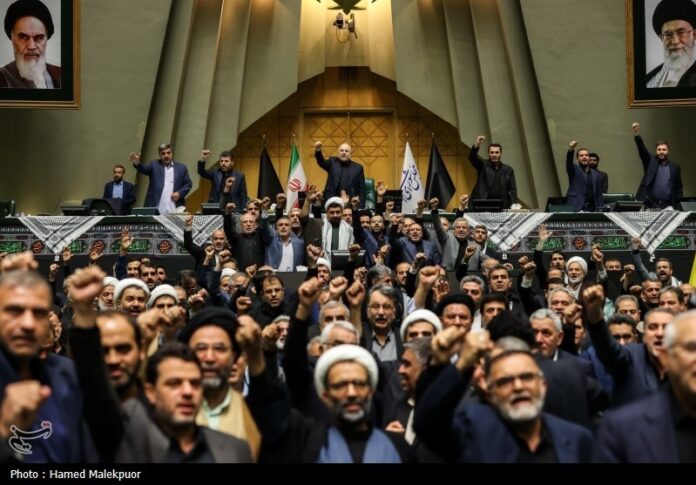Iran’s Islamic Consultative Assembly has passed a bill titled “Intensifying Penalties for Espionage and Collaborators with Hostile Countries,” criminalizing various methods of maintaining the free flow of information in the country.
The bill, approved in an open session on June 23, 2025, consists of nine articles. Part of Article 4 states: “Sending videos or images to hostile or foreign networks, which, if published, would typically weaken public morale, cause division, or undermine national security, will result in a fifth-degree imprisonment penalty and permanent dismissal from government and public services.”
In the political and judicial discourse of the Islamic Republic of Iran, many Iranian media outlets based abroad are labeled as “hostile or foreign networks.”
Over the past decades, particularly following the 2009 protests, intensified security and judicial crackdowns on journalists and media, along with extensive restrictions on free reporting in Iran, have gradually shifted news authority to media outlets outside the country. Currently, a significant portion of Iranian citizens obtain their information and news—especially during major political and social events in Iran—from websites and television channels based abroad. Due to the Islamic Republic’s stringent restrictions on foreign media presence in Iran and the criminalization of collaboration with media opposing the regime, Article 4 of the bill effectively further limits these media outlets’ independent news sources and criminalizes sending news, images, or videos to them.
Additionally, Article 5 of the bill declares the “use, possession, purchase, sale, or import of Starlink” as prohibited, carrying a sixth-degree imprisonment penalty. A recurring pattern of disrupting free information flow in Iran involves cutting off international internet access, reducing bandwidth, or imposing severe restrictions on internet access. To mitigate the resulting damages, some Iranian citizens have resorted to purchasing and installing satellite internet (Starlink).
